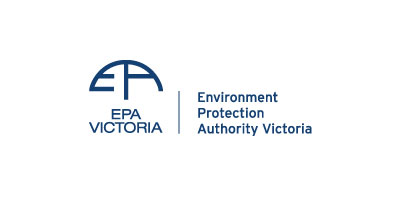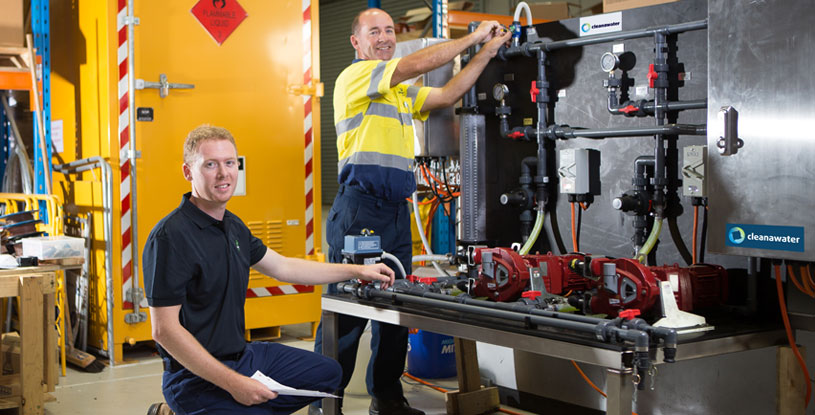Treating wastewater from dairy farms and processing plants
In Victoria alone, over 5,000 dairy farms and 1 million cows provide a third of Australia’s milk, 80 per cent of our processed dairy products, and 90 per cent of our exports. As such, the dairy industry is an important part of the Australian economy.
However, along with the benefits of the dairy sector, there are also environmental challenges. Dairy farms and processing plants produce waste and, in particular, their wastewater streams require careful handling to prevent damage to the environment.
Cleanawater is dedicated to helping you understand and manage the challenges faced by the dairy industry in regards to wastewater management. Contact our expert team for advice on the right solutions for your business.
The EPA and compliance

The Environment Protection Authority is responsible for enforcing regulations in connection with wastewater discharges from all users, including the dairy sector. They also provide resources about waste management and guidelines to help dairy farmers remain compliant. However, they also have the authority to impose fines for non-compliance and may even shut down facilities on a temporary or permanent basis to protect the environment. The economic consequences for dairy farmers are severe, therefore it is vital to put an effective wastewater management system in place.
In terms of the dairy sector, effluent systems are designed to capture water from all the animal holding areas. Solids are filtered out and the water is contained for re-use by spraying on crops or fodder. Effluent ponds form a major part of wastewater management for dairy farmers.
Dairy processing plants have to deal with high levels of fats coming from spills of processed or semi-processed products. Fat causes problems because it builds up inside equipment and piping causing blockages. It also has a high oxygen demand. The chemicals used in dairy production processes as well as cleaning also create pH problems in wastewater. pH must be controlled in order to keep the wastewater discharge within specification.
Getting your design right
One of the challenges in managing wastewater from dairy farms and processing plants is the variable nature of the effluent by season and by production volume. A wastewater treatment system must be designed to handle peak flow rates and peak levels of contamination. Failure to get the design right will result in excursions of wastewater quality during peak times.
These incidents of non-compliance can lead to fines by the EPA. In addition, it is much more expensive to upgrade a wastewater treatment system after construction than to build the right size unit in the first place. In a worst-case scenario, the EPA could require a facility shutdown until issues are resolved, resulting in a loss of hundreds of thousands of dollars.
Expert advice is critical during the planning stage in order to ensure the right system for your farm or processing plant.
What can Cleanawater offer?

Cleanawater is a specialist in wastewater treatment. Our experts are knowledgeable on technical matters as well as compliance requirements for the dairy sector. Our consultancy services help you identify the best solution for your business and ensure that the design meets your capacity requirements.
Once a wastewater system is installed, it requires ongoing maintenance and servicing to ensure that it continues to perform as per design. Our service technicians are well-trained on the equipment. They are able to troubleshoot problems and perform routine maintenance tasks. A well-managed maintenance program extends the life of wastewater treatment equipment and maximises the return on investment.
Cleanawater also liaises with water authorities on behalf of our customers. Our history of over 20 years experience in the industry enables us to understand the requirements of regulators and help you meet your compliance criteria.
Can you manage your own compliance?
Dairy operators can choose to set up monitors and alarms on their wastewater systems in an attempt to manage their own compliance. Alarms warn operators when the wastewater quality is deteriorating in order for corrective action to be taken before a non-compliance incident.
However, there is a risk in this scenario of problems in the system remaining undetected until it’s too late. For example, a dirty or faulty probe may not detect a change in pH. For this reason, it is advisable to have a professional water treatment technician or engineer oversee the maintenance program of a wastewater treatment system.
Contact Cleanawater for more information about handling wastewater from the dairy sector
Cleanawater supplies expert services and products to ensure dairy farms and processors stay compliant. We help you to identify the best solution for your wastewater treatment along with maintenance services to keep your systems online and functioning well.
Find out more at Cleanawater or call our expert team to request expert advice for your dairy farm wastewater treatment.
Must Read
What to Expect During a Modular Wash Bay Installation
CleanaWater, we make the process of installing a modular wash bay on your site as smooth and straightforward as possible. ...
Read moreThe CleanaWater Team Driving Water Treatment and Sustainability
CleanaWater is powered by a dedicated team of professionals who bring expertise and passion to every project. ...
Read more